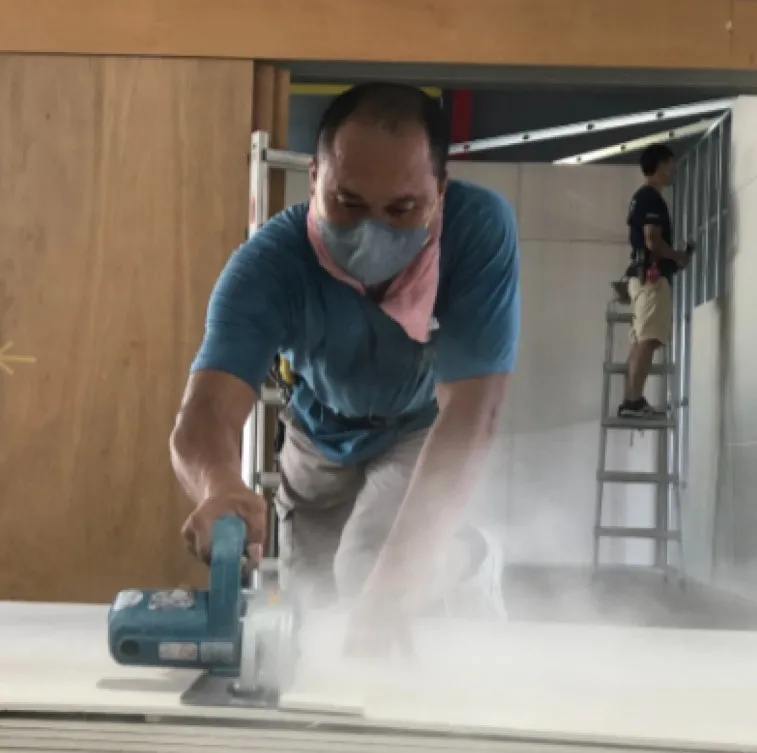You might be used to the dust at work — but are your lungs?

You’re used to the dust — but what about your lungs?
In many work environments, airborne dust has become part of the everyday scene. Whether it’s a construction site, a woodshop for interior renovations, a CNC metalworking facility, or a cement or ceramics plant, dust is always in the air — stirred up by machines and settling on every surface.
It’s not just dirt on the ground or sawdust on your tools. These fine particles — wood chips, metal shavings, cement dust — stay suspended in the air and make their way into your lungs with every breath.
Maybe you've gotten used to it. A little cough, a sore throat, or a stuffy nose might not seem like a big deal. But these small signs could be your body trying to tell you something. Breathing in fine particles over time increases the risk of chronic bronchitis, pneumoconiosis, and other serious lung conditions. Many work-related illnesses start quietly — and by the time symptoms show, it may already be too late to reverse the damage.
How much is your health worth to you?
Some people hesitate to spend more on a good-quality personal particulate respirator, thinking it’s too expensive. But if you break it down, the cost is often lower than other daily habits. For example, one bubble tea a day costs around NT$50 — that’s over NT$1,500 a month. A reliable Taiwan facemask that filters out harmful particles can cost less than NT$10 a day.
Instead of spending on drinks, why not put that money toward protecting your lungs from long-term damage?
The right gear makes a difference
You can’t eliminate dust from every workspace, but you can reduce how much of it ends up in your lungs. Wearing a Taiwan facemask that meets international standards helps filter out harmful particles in the air, making it easier to breathe clean.
Don’t wait until your health takes a hit. Prevention starts now. Don’t let “getting used to it” turn into “ignoring it.” Choose a personal protective respirator that does its job — and give your lungs the protection they deserve.